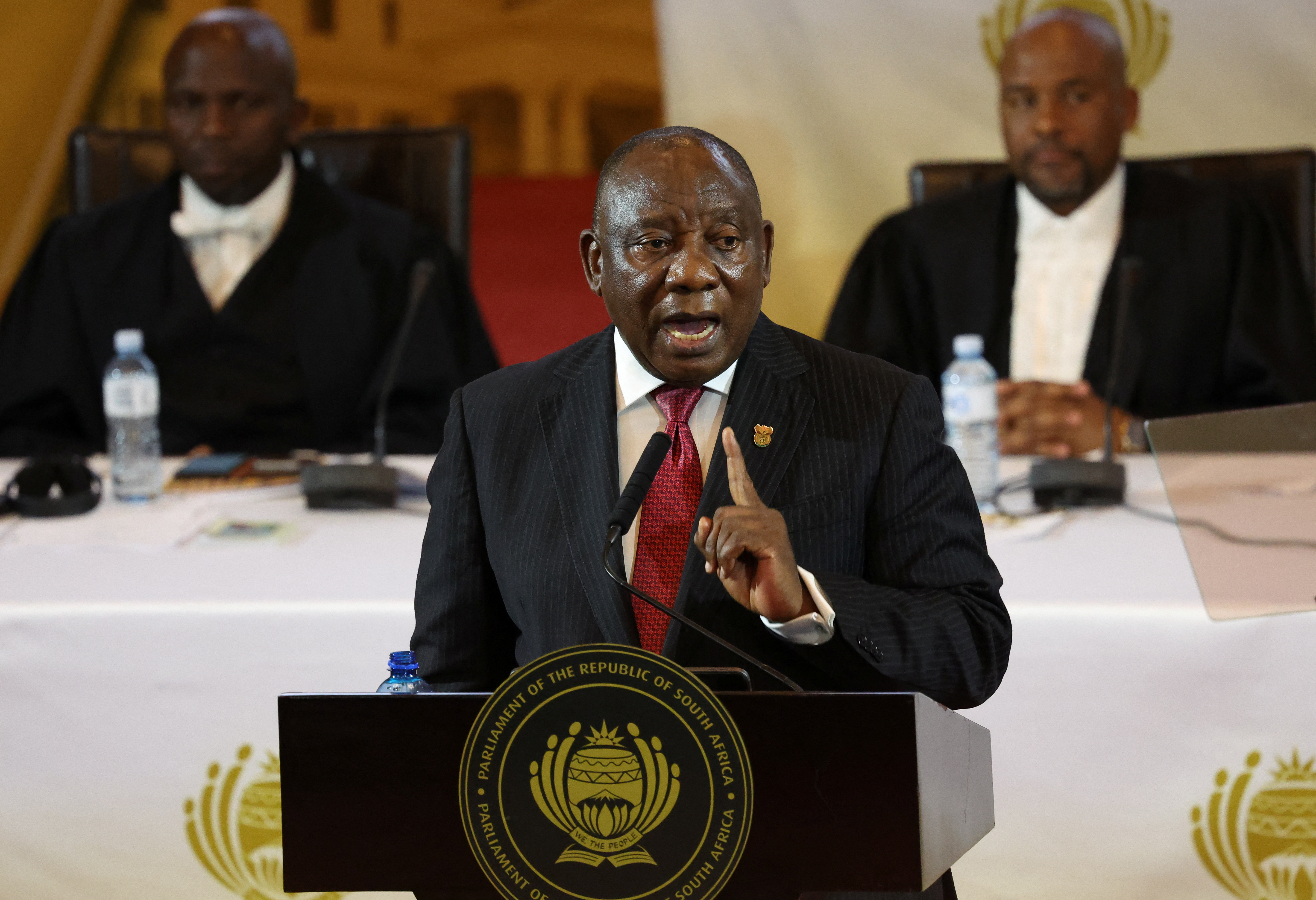International
Ramaphosa’s double standards on DRC’s crisis

Despite
previously advocating for dialogue as the right path to a solution to the
conflict in the east of the Democratic Republic of Congo (DRC), during his
press conference in Kinshasa on July 6,2023, South African President Cyril
Ramaphosa changed course. He backed
Congolese President Felix Tshisekedi who has invested heavily in war over
peace.
“We
shared our common view on the resolution of conflicts not only on our continent
but globally as well. We agreed that the best way that is tried and tested of
resolving conflicts is still dialogue, through when people sit down and are
able to find ways of negotiating,” Ramaphosa stated.
Ramaphosa
recalled that different initiatives by regional blocs, and the Africa Union,
agreed on dialogue and negotiations between concerned parties as the suitable
way of halting insecurity in DRC, mainly in its eastern part where more than
260 armed groups have found a safe haven.
Despite
Ramaphosa's emphasis on dialogue as the preferred way for conflict resolution,
he has shifted his stance and begun supporting military interventions. He has
dispatched thousands of South African National Defense Force (SANDF) troops to
the DRC to fight the M23 rebels, aligning with Tshisekedi's agenda.
"We
are not an island, we are in a community of a number of sister countries and
when one sister country faces challenges, such as security, the community takes
a decision and we are expected to deploy and come to the aid of that country,"
Ramaphosa said on February 15.
Ramaphosa
authorized the deployment of 2,900 more soldiers to the country to help the
Congolese army, FARDC, hoping to finish off the M23 rebel group which is
fighting to protect the rights of Kinyarwanda-speaking Congolese citizens who
are persecuted by their own government.
The
South African forces, as part of SADC troops, have been backing inhumane
activities targeting Kinyarwanda-speaking Congolese being carried out by the
Congolese army coalition of Burundian troops, Eastern European mercenaries,
Wazalendo militia, and FDLR, a Rwandan terrorist group formed by remnants of
the perpetrators of the 1994 Genocide against the Tutsi in Rwanda.
Ramaphosa's
shift from advocating for political dialogue to supporting military approach by
Kinshasa risks further destabilizing the vast mineral rich country, and the
entire region. It is concerning, given that a similar military approach,
endorsed by SADC a decade ago, failed to yield a solution.
The
Democratic Alliance (DA) Member of Parliament, and shadow Minister of
Agriculture, Land Reform and Rural Development, MP Kobus Marais, termed the
deployment of South African troops in DRC reckless, and called on Ramaphosa to
reverse the decision.
The
Kinyarwanda-speaking Congolese, especially Congolese Tutsi, are being targeted
and killed by the Congolese army coalition and armed militia while the world is
watching idly. The M23 rebels have vowed to fight until they are recognized and
given their rights as other Congolese citizens.
Ramaphosa
previously encouraged Kinshasa to employ negotiation with M23 and address the
underlying causes of insecurity. For his economic interests, however, he
changed his position and embraced the path of increasing violence, disregarding
the suffering of the Congolese people.



